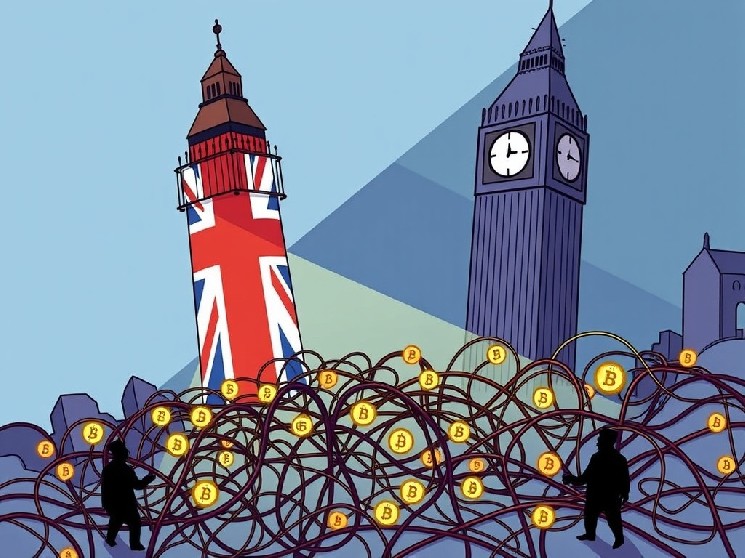The financial world is buzzing with significant news from the United Kingdom. The UK government recently took a decisive step, imposing new UK crypto sanctions aimed squarely at “circumvention and crypto networks” that Russia allegedly exploits. This move specifically names the Grinex and Meer exchanges, both reportedly linked to a ruble-backed token known as A7A5. This development, highlighted by @PiQSuite on X, marks a crucial escalation in the ongoing financial measures against illicit activities.
Why Are UK Crypto Sanctions Targeting These Specific Exchanges?
Russia has faced extensive international sanctions following recent geopolitical events. However, reports suggest that some entities attempt to bypass these restrictions using digital assets. The UK’s latest action directly addresses this perceived loophole.
The Grinex and Meer exchanges have come under scrutiny for their alleged role in facilitating these circumvention efforts. Specifically, their connection to the A7A5 token, which is pegged to the Russian ruble, raises concerns. This token could potentially serve as a conduit for moving funds outside traditional banking systems, making it harder to track.
- Grinex Exchange: Identified as a key player in enabling illicit financial flows.
- Meer Exchange: Also implicated in supporting networks designed to bypass existing sanctions.
- A7A5 Token: A ruble-backed digital asset, suspected of being used for transferring value.
What Do These UK Crypto Sanctions Mean for the Crypto Landscape?
These targeted UK crypto sanctions send a strong message: governments are increasingly vigilant about the use of digital assets for illicit purposes. For the named exchanges, Grinex and Meer, these sanctions will severely impact their operations and reputation. It will likely restrict their access to legitimate financial services and deter users globally.
The broader cryptocurrency market may also feel ripple effects. While the immediate impact on major cryptocurrencies might be minimal, such actions reinforce the narrative that regulatory bodies are strengthening their oversight. This could lead to increased due diligence requirements for other exchanges and financial institutions dealing with crypto.
Navigating the Complexities of Crypto Sanctions Enforcement
Enforcing sanctions in the decentralized world of cryptocurrency presents unique challenges. Unlike traditional banking, where centralized entities can be easily identified and blocked, crypto networks are often permissionless and global. This makes tracing and seizing assets more complex.
However, governments are enhancing their capabilities. They are collaborating with blockchain analytics firms and leveraging advanced tracing tools to identify suspicious transactions and entities. The naming of specific exchanges like Grinex and Meer indicates a growing sophistication in identifying the points where fiat currency interfaces with the crypto world, allowing for intervention.
This ongoing cat-and-mouse game between regulators and those attempting to evade sanctions highlights the evolving nature of financial warfare in the digital age.
What’s Next for Global Crypto Regulation After These UK Crypto Sanctions?
The UK’s move could inspire similar actions from other nations. As governments worldwide grapple with the dual nature of cryptocurrencies – innovation versus illicit use – we can expect more coordinated efforts to establish robust regulatory frameworks. These UK crypto sanctions are a clear signal that the era of largely unregulated crypto activity is drawing to a close, especially when national security interests are at stake.
The focus will likely shift towards:
- Enhanced KYC/AML: Stricter Know Your Customer (KYC) and Anti-Money Laundering (AML) protocols for crypto businesses.
- International Cooperation: Greater collaboration among countries to share intelligence and enforce cross-border sanctions.
- Technological Advancements: Continued investment in blockchain analytics and forensic tools to track illicit funds.
The UK’s decisive action against Grinex and Meer exchanges underscores a growing commitment to curbing the misuse of digital assets. These UK crypto sanctions are not just about penalizing specific entities; they represent a broader strategic effort to tighten the net around illicit financial activities, particularly those linked to state-level circumvention. As the crypto world matures, so too does the sophistication of regulatory oversight, ensuring a more secure and accountable financial ecosystem for everyone.
Frequently Asked Questions (FAQs)
Q1: What are UK crypto sanctions?
A1: UK crypto sanctions are financial restrictions imposed by the United Kingdom government on individuals, entities, or networks involved in using cryptocurrencies for illicit activities, particularly those linked to bypassing existing sanctions against specific nations.
Q2: Which crypto exchanges did the UK sanction?
A2: The UK specifically named and sanctioned the Grinex and Meer crypto exchanges, citing their alleged involvement in Russian circumvention networks.
Q3: What is the A7A5 token mentioned in the sanctions?
A3: The A7A5 token is described as a ruble-backed digital asset. It is suspected of being used as a tool to facilitate the transfer of value and bypass traditional financial sanctions.
Q4: How do governments enforce crypto sanctions?
A4: Governments enforce crypto sanctions by identifying and targeting centralized points of interaction (like exchanges), leveraging blockchain analytics to trace transactions, and collaborating internationally to restrict access to funds and services.
Q5: What is the broader impact of these sanctions on the crypto market?
A5: While the immediate impact on major cryptocurrencies may be limited, these sanctions signal increased regulatory scrutiny on the crypto industry, potentially leading to stricter compliance requirements for exchanges and greater focus on preventing illicit use.
Share This Insight!
Did you find this article insightful? Share it with your network on social media to keep others informed about the evolving landscape of crypto regulation and the crucial steps governments are taking to combat illicit finance!
To learn more about the latest crypto market trends, explore our article on key developments shaping Bitcoin institutional adoption.
Disclaimer: The information provided is not trading advice, Bitcoinworld.co.in holds no liability for any investments made based on the information provided on this page. We strongly recommend independent research and/or consultation with a qualified professional before making any investment decisions.

